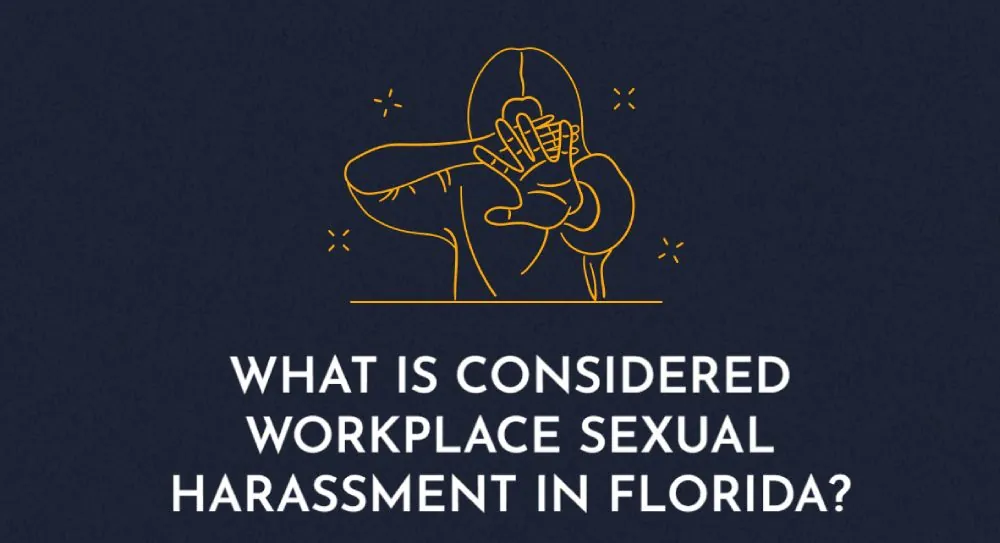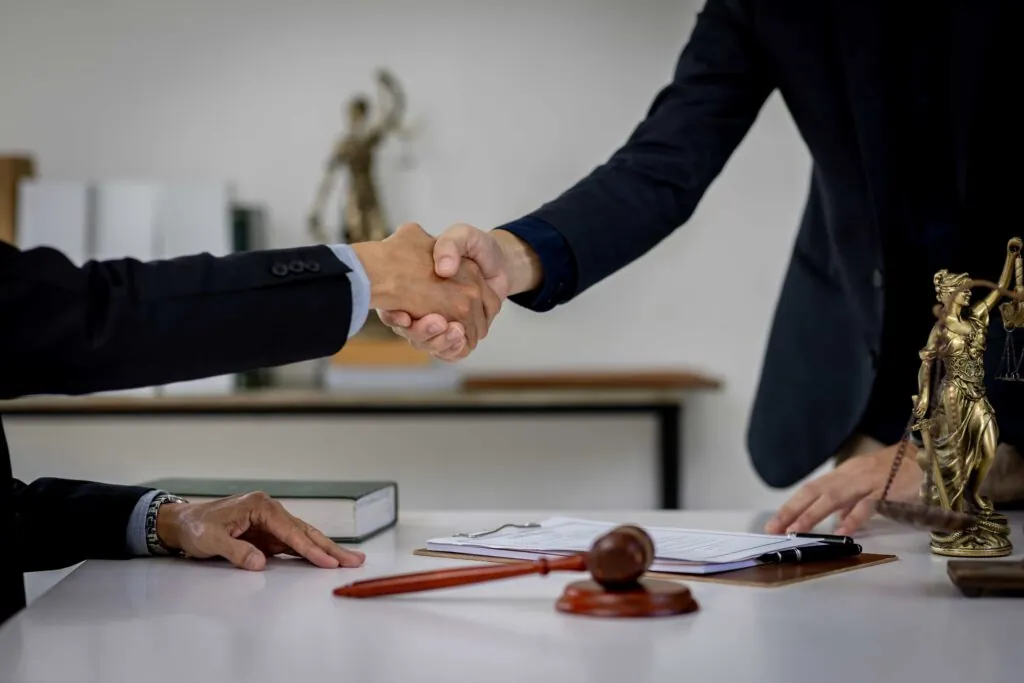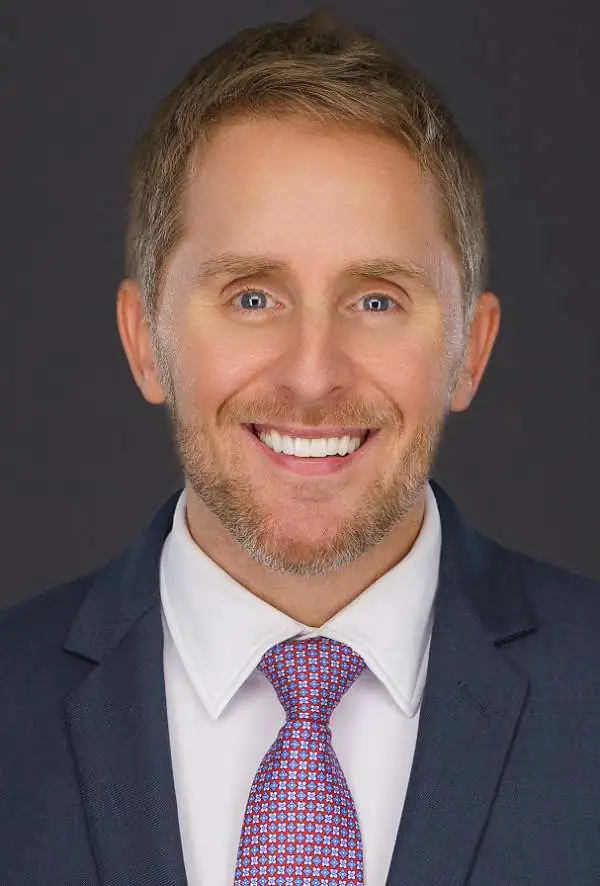
Harassing involves conduct targeting a specific person, causing substantial emotional distress and lacking legitimate purpose.
Sexual harassment still plagues workplaces across this country to an unsettling degree. In 2021, the U.S. Equal Employment Opportunity Commission (EEOC) received more than 10,000 sex-based harassment complaints.
If you believe that you have recently suffered from the effects of sexual harassment at your job, let’s talk about what is considered workplace sexual harassment in Florida and how to address it. At Brenton Legal, our sexual harassment attorneys are highly experienced and ready to help you hold a harasser or employer accountable for the harm they have caused you.
What Counts as Sexual Harassment at Work?
Federal and Florida sexual harassment laws prohibit numerous types of sex-based misconduct in the workplace. While there are countless variations of sexual harassment, the law has two definitions for this kind of harassment.
Sexual harassment is unwelcome, sex-based conduct that comes out in one of the following ways:
- Quid pro quo harassment—this takes place when your employer or a supervisor requires you to accept unwanted sexual advances or requests in exchange for work benefits; or
- Hostile work environment harassment—this takes place when unwanted, sex-based behavior is so severe or prevalent in your workplace that a reasonable person would call your workplace a hostile environment.
And remember, sexual harassment does not have to be based on a harasser’s sexual desire, and it does not have to come from someone of the opposite sex.
Now that we have the main definitions of sexual harassment, we should look at examples. What is work sexual misconduct? This type of misconduct can include the following:
- Slurs;
- Multiple unwelcome requests for romantic encounters;
- Jokes about sex or gender;
- Comments about appearance or physical features;
- Displays of graphic material;
- Following;
- Excluding individuals from events or opportunities because of sex or gender;
- Discussions about sexual activity;
- Stereotyping individuals because of sex or gender;
- Touching without consent;
- Exposing intimate body parts;
- Invading personal space; and
- Threatening punishment for refusing sexual demands.
You do not even have to be the target of someone’s offensive, sex-based behavior to have a sexual harassment claim. Sexual harassment affects all who witness it or are overlooked because of sexual favoritism toward another.
Who is Liable for Sexual Harassment in the Workplace?

Liability for workplace sexual harassment in Florida can extend to both individuals and employers. The harasser—whether a supervisor, coworker, or even a non-employee like a vendor—can be held personally responsible. Employers may also be liable, especially if the harassment was committed by someone in a position of authority or if the company failed to act after being made aware of the issue. Under federal and Florida law, employers have a duty to maintain a safe and harassment-free work environment.
What Are the Legal Consequences of Sexual Harassment in Florida?
Sexual harassment can lead to serious legal consequences. Victims may file a claim under the Florida Civil Rights Act or Title VII of the Civil Rights Act of 1964. If successful, they may be awarded compensation for emotional distress, lost wages, and legal costs. Courts may also impose punitive damages in severe cases. Employers could face mandatory policy changes, training requirements, or reputational damage as a result of a claim. Taking prompt legal action helps hold offenders accountable and prevent future harm.
What Should I Do If I Am a Victim of Sexual Harassment at Work?

If you have a harasser in your Florida workplace, speak to one of our skilled sexual harassment attorneys at Brenton Legal right away. We can help ensure that you receive all the protection and legal relief you deserve. Let’s look at the best ways to handle a sexual harassment claim with the help of an attorney.
Tell Your Harasser to Stop
A keyword in the legal definition of sexual harassment is “unwelcome.” If you want to receive remedies for workplace harassment, you must prove to a court or government agency that your harasser’s behavior was unwelcome. You can establish the unwelcomeness early by telling a harasser to stop at the first sign of misconduct.
We acknowledge that confronting a harasser is not always easy. If it is too difficult to directly address your harasser, speak to a trusted supervisor about the mistreatment that you have suffered.
Collect Evidence of the Harassment
As soon as you suspect sex-based misconduct at work, you should start to collect evidence of the behavior. Proof of harassment can include the following:
- Witness testimony,
- Copies of complaints,
- Personnel records,
- Wage records,
- Copies of employer policies,
- Correspondence, and
- Pictures.
Your testimony about the harassment you have endured can be powerful evidence in your case. To help ensure that your testimony is clear and effective, take notes regarding every instance of harassment you have endured, including dates, times, what was said or done, and who was there.
File an Internal Complaint
Employers are automatically liable for harassment that is committed by supervisors and ends in adverse employment decisions against victims. Employers are also liable for harassment committed by clients, contractors, customers, and non-supervisory employees, but the victim must prove the following:
- The employer did not reasonably try to correct or prevent the harassment; and
- The victim did not unreasonably fail to use the employer’s procedures for correcting or addressing harassment.
Review your employer’s harassment policies and learn how to file a complaint at work. By filing a complaint, you can prevent your employer from avoiding responsibility for the misconduct of a harasser who is not a supervisor.
File a Government Complaint or Civil Lawsuit
If you have had to endure sexual harassment at work, under Florida law and federal law, you can take legal action against your employer or harasser. In a legal action, you can recover compensation for your financial losses, compensation for emotional distress, punitive damages, injunctive relief, and legal costs.
The EEOC and the Florida Commission on Human Relations (FCHR) handle sexual harassment complaints. You can also file a civil lawsuit against a perpetrator or enabler of harassment, but you must first file a government complaint.
Complaints with the EEOC must be submitted within 180 days (or 300 days if state law covers the complaint as well). And complaints with the FCHR must be filed within 365 days. Your attorney can ensure your claims are filed timely.
Frequently Asked Questions
How Are Sexual Harassment Cases Handled in Florida?
Sexual harassment cases in Florida can be filed with the EEOC or Florida Commission on Human Relations (FCHR). These agencies investigate the claim, and if needed, issue a “Right to Sue” so you can pursue legal action. The process may involve mediation, settlement, or a court case depending on the evidence.
Do I Need to Hire a Lawyer for My Sexual Harassment Case?
You’re not required to hire a lawyer, but it’s highly recommended. A lawyer can help you understand your rights, build a strong case, meet deadlines, and negotiate a fair settlement or represent you in court.
How Much Compensation Can I Get for My Sexual Harassment Case in Florida?
Compensation varies by case but may include back pay, emotional distress, punitive damages, and legal fees. The amount depends on the severity of the harassment and its impact on your life and career.
How Long Do I Have to File a Sexual Harassment Claim in Florida?
You have 300 days under federal law (EEOC) and 365 days under state law (FCHR) from the date of the incident to file a claim. Acting quickly is important to preserve your rights.
Speak to an Attorney Today

At Brenton Legal, our employment attorneys have gained the respect of our clients and peers for good reason. We are knowledgeable, diligent, and straightforward. If you are unsure whether your situation constitutes sexual harassment, speak to us.
We let prospective clients know as soon as possible whether they have a good chance of winning. We do not want anyone to waste time or peace of mind in lengthy and stressful litigation.
Whether your complaint is complex or simple, we can handle it and maximize your recovery. And we work entirely on contingency, so you do not pay us unless we win for you. When your workplace becomes a dangerous environment, we can be your safe space, your advocate, and your protector. If you need help, do not hesitate to call us at 954-639-4644 or contact us online for a free consultation. We serve employees across Florida.

